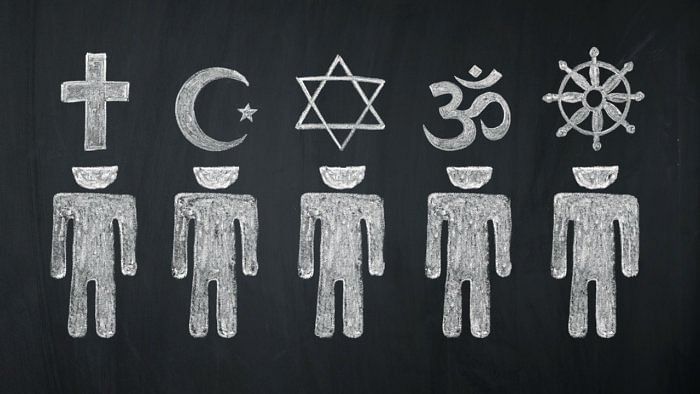
Karnataka is registering more than one case a month under the new anti-conversion law, which was introduced under pressure from BJP lawmakers.
The Karnataka Protection of Right to Freedom of Religion Act, which seeks to regulate religious conversion, came into effect May 17, 2022.
Till date, the police have booked nine cases of which final reports have been submitted to the court in two, Home Minister Araga Jnanendra said in a written reply to the Legislative Assembly.
According to the minister, the nine cases are spread across Bengaluru, Mangaluru, Kodagu, Mandya and Chitradurga. It is also clear from the minister’s reply that no case has led to conviction or acquittal so far.
While the law was passed in the legislature in September, the BJP government first promulgated an ordinance giving it effect on May 17, 2022. Karnataka became the 9th Indian state to enact the anti-conversion law.
The law prohibits “conversion from one religion to another by misrepresentation, force, undue influence, coercion, allurement or by any fraudulent means.”
Virajpet BJP MLA K G Bopaiah, a former Assembly Speaker, told DH that implementation of the anti-conversion law needs improvement. It was to his question that Jnanendra replied.
“Conversion is happening rampantly,” he said. “And, I don’t think the government’s statistics include Love Jihad cases,” he added. Love Jihad is an unofficial term that refers to an alleged campaign by Muslim men to convert Hindu women under the pretext of love or marriage.
The Congress has opposed Karnataka’s anti-conversion law on the grounds that it can be misused to target minorities. A section of Christians, especially, expressed anxiety over the law.
“We’re against forcible conversions,” Deputy Leader of the Opposition U T Khader, the Mangalore MLA, told DH. However, Khader has a problem with the definition of ‘allurement’: any gift, gratification, easy money or material benefit either in cash or kind. “Say, I run a hospital. If I provide free treatment to a patient, this law can be misused to say that it was a gift for religious conversion,” he said. Khader added that he is unaware of the two cases of religious conversion booked in Mangaluru.
Under the law, forcible conversion can result in 3-5 years jail with Rs 25,000 fine. Converting a minor, woman or an SC/ST person carries 3-10 years jail and Rs 50,000 fine. Mass conversion has 3-10 years and Rs 1 lakh fine.
